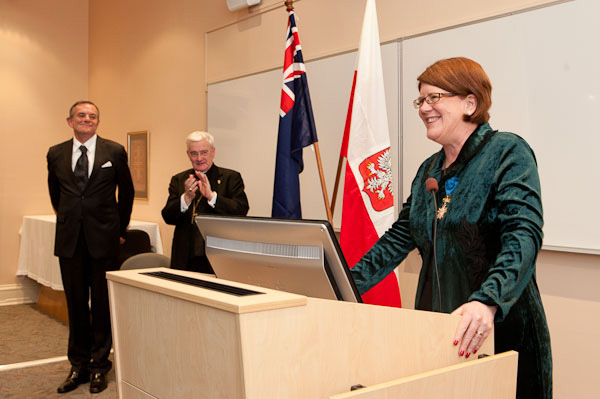Several weeks ago, I assisted a Year 12 RE student in her assignment on Catholic moral theology. She was investigating Catholic teaching on euthanasia.
Now a classmate has requested my assistance in a similar assignment: Why does the Catholic Church oppose the use of IVF technology?
I am reproducing my answers here, since what is interesting to one may be interesting to many.
1. What are the main reasons for the Catholic Church’s opposition to the use of IVF technology?
IVF diminishes human dignity and harms human life.
In the first place, a human life is conceived in a petri dish, which is quite different from conception within the context of sexual intercourse. IVF separates the procreative dimension of sex from its unitive or loving dimension.
In the second place, IVF typically involves the fertilisation of multiple ova, some of which may be frozen or simply discarded. These aren’t “merely” fertilised ova or zygotes; they are also persons, owed their human rights.
2. Do you believe that IVF provides any benefits for society?
IVF certainly provides benefits! Most obviously, it enables otherwise infertile couples to bear children. The Catholic position doesn’t deny the good which IVF serves, but it does insist that good ends cannot justify evil means.
3. What are the procreative and unitive components of the marital act, and how does IVF separate these components?
The procreative component of the conjugal act is related to intention and natural order. For a sexual act to be procreative, it must be ordered towards reproduction. Whether or not a sexual act actually engenders new life isn’t pertinent. Take two examples:
- Sexual intercourse, wherein contraception fails and pregnancy occurs. Even though a new human life is created, this act is not procreative; it was, by intention, not ordered towards new life.
- Sexual intercourse between an a couple who are infertile due to injury, illness or old age. Even though no human life is created, the act is procreative; it was, by its nature, ordered towards new life.
The unitive component is related to the theology of the human person, and the theology of marriage. It is not mere physical union. A handshake, or a hug, is a physical union, but it doesn’t have unitive meaning. Sexual intercourse between two people who aren’t married is a physical union, but it doesn’t have unitive meaning. Unitive meaning is found only in procreative intercourse between a married couple.
Man and woman are each made in the image of God, but together they are even more closely the image of God. In marriage the two become one, and this union’s resemblance to God is most radically expressed in the unitive act.
In the animal world, procreative sex brings pleasure and perpetuates the species. Humans are animals (or physical beings), but humans are also spiritual beings. So within marriage — which is both physical and spiritual — procreative sex is both an animal act, and a spiritual act. It expresses the union of two becoming one, and it facilitates (but does not necessitate) “co-creation,” wherein immortal beings, willed by God, are “enfleshed” by the co-operation of husband and wife.
I have said that humans are both physical and spiritual, and the conjugal act is both physical and spiritual. In other words, the conjugal act is human in its most profound sense. IVF is not. It is a biological act, but it doesn’t have the same spiritual and unitive meaning; there is no occurrence of two becoming one in co-operation with God’s design.
4. Do you believe that through the use of IVF technology, doctors play the role of God?
I think IVF technology does “play God,” in a destructive and evil way.
In the scriptural account of Original Sin, the forbidden fruit was tempting because, “when you eat of it, your eyes will be opened, and you will be like God.” (Gen 3:5) This is humanity’s ultimate sin: the desire to play God; to usurp God. We see this in history’s greatest sins (the Holocaust for example), and in our smallest sins (the inability to love with pure selflessness, instead imposing our own will and restricting the God-given freedom of another).
Ironically, man and woman already resemble God — made in His image and likeness — and we are destined for even greater. God became a man in Jesus Christ, the Word Incarnate, so that men and women could become like God.
The best way to be like God is to imitate Christ, who came not to be serve, but to serve. To play God as He really is, it to embody humility:
“Christ Jesus, though he was in the form of God, did not count equality with God a thing to be grasped, but emptied himself, taking the form of a servant, being born in the likeness of men. And being found in human form he humbled himself and became obedient unto death, even death on a cross.” (Philippians 2:6-8)
When we play God in this way — by imitating Christ — we can only do good. Similarly, when we play God by applying our intellect and reason, advancing in science and technology and improving living conditions, we do good. But when we play God in a prideful way, violating the rights of others, then we do evil. We not only “play God,” but we also “play God badly,” in the same way a ham actor can “play Hamlet badly;” we caricature God!
IVF plays God insofar as it usurps God’s design for creation. IVF brutally caricatures God insofar as it diminishes human dignity and destroys human life. God would never do that.






“Sexual intercourse between an a couple who are infertile due to injury, illness or old age. Even though no human life is created, the act is procreative; it was, by its nature, ordered towards new life.”
Could you explain what “ordered’ means in the above?
Does not infertile mean, essentially, ‘by nature not ordered toward new life’ because reproduction is not a possibility?
Hi Samuel. Good question! Keep in mind that the “procreative component” is not a biological characteristic, but one relating to intention and nature.
Sexual intercourse between a man and a woman, by its very nature, is ordered towards, or geared towards, procreation.
In contrast, heterosexual intercourse which employs artificial contraception is not ordered towards new life. It is sterile by intention or design. Similarly, sexual intercourse between two men or two women is not ordered towards procreation. Homosexual intercourse is sterile by its nature. Another way of saying this: homosexual intercourse is innately sterile.
Heterosexual intercourse between an infertile couple is not intentionally sterile. Nor is it innately sterile. It may be said to be sterile by its accidents — in this case, the infertility of one or both parties. In the same way, sexual intercourse between a fertile couple which does not conceive new life is also accidentally sterile: it didn’t actually conceive new life. But accidentally infertile sex is still procreative — it’s still ordered towards or geared towards new life by its nature and by its intention.
I wonder if this helps or hinders? My answer relies a lot on philosophical categories that aren’t commonly employed in most people’s thinking.
Here’s the Church’s “official take:”